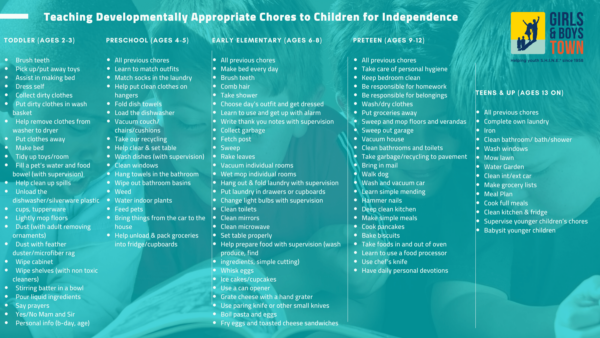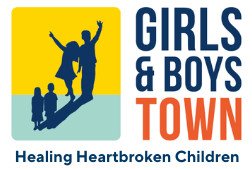- Staff login / Hotline
- 0861 58 58 58
Chores can teach children important life skills

Teaching children life skills is not only important for self-care and sufficiency, it also allows them to feel empowered and helps develop healthy self-esteem. Although children often complain about chores, those who are expected to perform regular household chores are happier than those who are not.
Chores help a child develop awareness for the needs of others in the household and they require that a child decide when and how to complete a task. This involves basic time management and forward planning. Psychologists and Child and Youth Care specialists emphasise that responsibility is a “real-world” skill necessary for adult life.
Well-selected chores are developmentally appropriate ways to lead children to independence.
As infants, children rely on parents for nourishment, personal hygiene and mobility. As children grow, they become more independent in these basic areas of living, but still depend on caregivers for love, protection, guidance, and support. As children reach adolescence and move toward adulthood, they become less reliant on caregivers and gain greater independence in all aspects of their lives. This process of separation prepares children for the demands of adulthood.
Our GBTSA children generally need to catch-up developmentally, and each child’s specific abilities and maturity level are taken into account when assigning chores. Our own GBTSA research highlighted a need for our young people to be more proficient in the areas of self-care and domestic routines in order to support their eventual disengagement from GBTSA and enhance their independence.
Getting children up-to-speed on household chores has obvious practical benefits, but it can go much deeper than that. By doing chores, children learn to empathise, develop a work ethic and value the work they and other family members do. Starting early with small habits can help build a foundation of positive traits and behaviours that will benefit kids for life.
Of course, in some household’s children are expected to do such arduous chores that they might be considered as victims of child labour practices. When work assigned to children interferes with their schooling, endangers their health or undermines their psychosocial wellbeing, the line has been crossed from age-appropriate chores to child labour. Sometimes broader social circumstances give rise to these practices – for example, in rural areas where children carry water over long distances. Child labour is fairly widespread in South Africa.
GBTSA operates off an internationally well-researched list of possible chores that most children in each age group are able to do, where youth are then able to integrate these learned independent living skills into their daily living. GBTSA staff assists them in acquiring and maintaining these skills.
